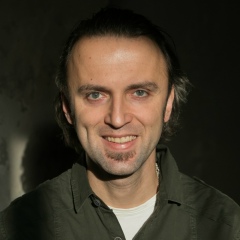История об экономике, ВШЭ и феодализме с сомнительными историческими аналогиями
Некоторое время назад большой шум вызвала информация о том, что почти три четверти российской экономики живет в госсекторе. Люди вспоминали, что десятилетие назад государство и госкомпании контролировали менее 40%. Лентач даже выпустил милую картинку о втором издании СССР в этой связи.
Мне в этой связи вспомнились события, которые происходили в королевстве Франков в первой половине VIII века. Тогда майордом Карл Мартел провел то, что сейчас называют бенефициарной реформой. Если говорить ОЧЕНЬ упрощенно, он понял, что давать землю своим сторонникам насовсем достаточно накладно. Земли быстро кончатся да и зависимость от тебя получаетелей достаточно условна. Тогда он начал раздавать земли не насовсем, а только за службу. Примерно это же мы видим и сейчас. Условно "ельцинская" занать (в широком смысле этого слова), получала компании, подряды, кресла директоров, главредов, деканов и т.д. совсем и в собственность. Новая же знать получает возможность управлять госкомпаниями. Показательно, что они не уходят с госслужбы не создают свои фирмы, они продолжают сидеть именно в госкорпорациях.
Кстати, можно поиграть с этой аналогией и дальше. Сейчас до крайности обострилась борьба между условными "либералами" и "государственниками" во власти, экономике, науке, искусстве, журналистике, спорте. Однако борьба эта получается какой-то странной. То вылезет фотография представителей противоположных лагерей в обнимку за чайком, то жертва режима Эрнста с юбилеем поздравит, то в "последнем вузе, сохранившем дух свободы" руководительница (к слову бывшая соратница Кропачева) не разрешает женщинам быть старостами. На поверку борьба есть, но она совсем другая. Не между сторонниками Милля или Ленина, Локка или Черчиля. Нет борьба между представителями разных ветвей знати - старой и нынешней, оставшейся от прошлого правления и нынешней. Причем в этих ветвях оказываются люди с совершенно разными взглядами и происхождением. Иногда между отдельновзятыми представителми старой знати меньше общего между отдельно взятыми представителями старой и новой.
Конечно было бы грубым упрощением, допустить, что речь идет только о дележке властного пирога. Нет, идеалогические разногласия присуствуют. Просто опять же они, как предствляется, лежат не в плоскости великих идеалогий 19 века и уж тем более не плоскости спора социал-либерализма, либерал-консерватизма и неолиберализма 21 века. Это спор между старыми вотчинниками, привыкли что в их дела больше некоторого не лезут и новым поколением "солдат президента".
Важно только понимать, что обе, именно обе стороны, как и подобает феодалам отводят народу роль безмолвствующего большинства или, в лучшем случае обострения борьбы, орудия в своих руках.
Некоторое время назад большой шум вызвала информация о том, что почти три четверти российской экономики живет в госсекторе. Люди вспоминали, что десятилетие назад государство и госкомпании контролировали менее 40%. Лентач даже выпустил милую картинку о втором издании СССР в этой связи.
Мне в этой связи вспомнились события, которые происходили в королевстве Франков в первой половине VIII века. Тогда майордом Карл Мартел провел то, что сейчас называют бенефициарной реформой. Если говорить ОЧЕНЬ упрощенно, он понял, что давать землю своим сторонникам насовсем достаточно накладно. Земли быстро кончатся да и зависимость от тебя получаетелей достаточно условна. Тогда он начал раздавать земли не насовсем, а только за службу. Примерно это же мы видим и сейчас. Условно "ельцинская" занать (в широком смысле этого слова), получала компании, подряды, кресла директоров, главредов, деканов и т.д. совсем и в собственность. Новая же знать получает возможность управлять госкомпаниями. Показательно, что они не уходят с госслужбы не создают свои фирмы, они продолжают сидеть именно в госкорпорациях.
Кстати, можно поиграть с этой аналогией и дальше. Сейчас до крайности обострилась борьба между условными "либералами" и "государственниками" во власти, экономике, науке, искусстве, журналистике, спорте. Однако борьба эта получается какой-то странной. То вылезет фотография представителей противоположных лагерей в обнимку за чайком, то жертва режима Эрнста с юбилеем поздравит, то в "последнем вузе, сохранившем дух свободы" руководительница (к слову бывшая соратница Кропачева) не разрешает женщинам быть старостами. На поверку борьба есть, но она совсем другая. Не между сторонниками Милля или Ленина, Локка или Черчиля. Нет борьба между представителями разных ветвей знати - старой и нынешней, оставшейся от прошлого правления и нынешней. Причем в этих ветвях оказываются люди с совершенно разными взглядами и происхождением. Иногда между отдельновзятыми представителми старой знати меньше общего между отдельно взятыми представителями старой и новой.
Конечно было бы грубым упрощением, допустить, что речь идет только о дележке властного пирога. Нет, идеалогические разногласия присуствуют. Просто опять же они, как предствляется, лежат не в плоскости великих идеалогий 19 века и уж тем более не плоскости спора социал-либерализма, либерал-консерватизма и неолиберализма 21 века. Это спор между старыми вотчинниками, привыкли что в их дела больше некоторого не лезут и новым поколением "солдат президента".
Важно только понимать, что обе, именно обе стороны, как и подобает феодалам отводят народу роль безмолвствующего большинства или, в лучшем случае обострения борьбы, орудия в своих руках.
A story about economics, the HSE and feudalism with dubious historical analogies
Some time ago, a big buzz was caused by information that almost three quarters of the Russian economy live in the public sector. People recalled that a decade ago, the state and state-owned companies controlled less than 40%. Lentach even released a nice picture of the second edition of the USSR in this regard.
In this regard, I remembered the events that took place in the Kingdom of Franks in the first half of the VIII century. Then Mayor Karl Martel carried out what is now called beneficiary reform. Speaking VERY simplistically, he realized that giving land to his supporters is completely unprofitable. The earth will quickly end and the dependence on you of the recipients is rather arbitrary. Then he began to distribute the land not for good, but only for service. About the same we see now. Conditionally, “Yeltsin’s” occupy (in the broad sense of the word), received companies, contracts, chairs of directors, editor-in-chiefs, deans, etc. completely and in the property. The new nobility gets the opportunity to manage state-owned companies. It is significant that they do not leave the civil service, do not create their own companies, they continue to sit in state corporations.
By the way, you can play with this analogy further. Now, the struggle between conditional "liberals" and "statesmen" in power, economics, science, art, journalism, and sports has intensified to an extreme. However, this fight turns out to be somehow strange. Either a photograph of representatives of the opposite camps crawls out embracing a seagull, then the victim of the Ernst regime congratulates him on his anniversary, then in the "last university that has preserved the spirit of freedom" the leader (by the way, Kropachev’s former comrade-in-arms) does not allow women to be elders. In fact, there is a struggle, but it is completely different. Not between supporters of Mill or Lenin, Locke or Churchill. There is no struggle between representatives of different branches of the nobility - the old and the present, left over from the previous government and the present. Moreover, in these branches there are people with completely different views and backgrounds. Sometimes between the individual representatives of the old nobility there is less in common between the individual representatives of the old and new.
Of course, it would be a gross oversimplification to assume that we are only talking about sharing the power pie. No, ideological divisions are present. Just again, they, it seems, do not lie on the plane of the great ideologies of the 19th century, much less on the plane of the dispute of social liberalism, liberal conservatism, and neoliberalism of the 21st century. This is a dispute between the old fiefs, they are used to the fact that a new generation of “presidential soldiers” are not getting into their affairs anymore.
It is only important to understand that both, namely both sides, as befits the feudal lords, assign the people the role of the silent majority or, in the best case scenario, aggravation of the struggle, weapons in their hands.
Some time ago, a big buzz was caused by information that almost three quarters of the Russian economy live in the public sector. People recalled that a decade ago, the state and state-owned companies controlled less than 40%. Lentach even released a nice picture of the second edition of the USSR in this regard.
In this regard, I remembered the events that took place in the Kingdom of Franks in the first half of the VIII century. Then Mayor Karl Martel carried out what is now called beneficiary reform. Speaking VERY simplistically, he realized that giving land to his supporters is completely unprofitable. The earth will quickly end and the dependence on you of the recipients is rather arbitrary. Then he began to distribute the land not for good, but only for service. About the same we see now. Conditionally, “Yeltsin’s” occupy (in the broad sense of the word), received companies, contracts, chairs of directors, editor-in-chiefs, deans, etc. completely and in the property. The new nobility gets the opportunity to manage state-owned companies. It is significant that they do not leave the civil service, do not create their own companies, they continue to sit in state corporations.
By the way, you can play with this analogy further. Now, the struggle between conditional "liberals" and "statesmen" in power, economics, science, art, journalism, and sports has intensified to an extreme. However, this fight turns out to be somehow strange. Either a photograph of representatives of the opposite camps crawls out embracing a seagull, then the victim of the Ernst regime congratulates him on his anniversary, then in the "last university that has preserved the spirit of freedom" the leader (by the way, Kropachev’s former comrade-in-arms) does not allow women to be elders. In fact, there is a struggle, but it is completely different. Not between supporters of Mill or Lenin, Locke or Churchill. There is no struggle between representatives of different branches of the nobility - the old and the present, left over from the previous government and the present. Moreover, in these branches there are people with completely different views and backgrounds. Sometimes between the individual representatives of the old nobility there is less in common between the individual representatives of the old and new.
Of course, it would be a gross oversimplification to assume that we are only talking about sharing the power pie. No, ideological divisions are present. Just again, they, it seems, do not lie on the plane of the great ideologies of the 19th century, much less on the plane of the dispute of social liberalism, liberal conservatism, and neoliberalism of the 21st century. This is a dispute between the old fiefs, they are used to the fact that a new generation of “presidential soldiers” are not getting into their affairs anymore.
It is only important to understand that both, namely both sides, as befits the feudal lords, assign the people the role of the silent majority or, in the best case scenario, aggravation of the struggle, weapons in their hands.

У записи 2 лайков,
0 репостов.
0 репостов.
Эту запись оставил(а) на своей стене Константин Крылов






















